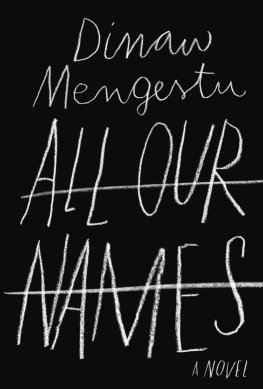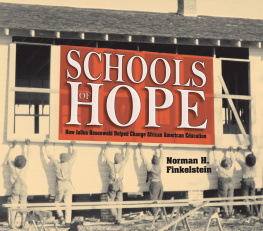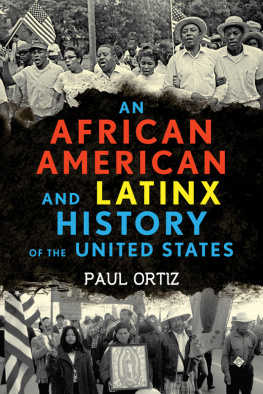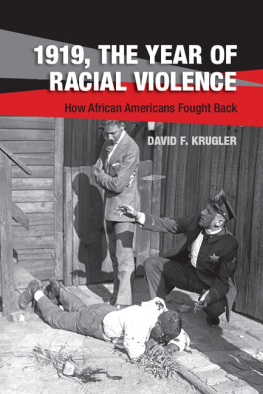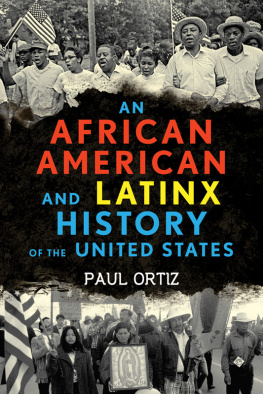THE BEAUTIFUL THINGS THAT HEAVEN BEARS
THE BEAUTIFUL THINGS THAT HEAVEN BEARS
DINAW MENGESTU
RIVERHEAD BOOKS
a member of Penguin Group (USA) Inc. New York
2007

RIVERHEAD BOOKS
Published by the Penguin Group
Penguin Group (USA) Inc., 375 Hudson Street, New York, New York 10014, USA Penguin Group (Canada), 90 Eglinton Avenue East, Suite 700, Toronto, Ontario M4P 2Y3, Canada (a division of Pearson Penguin Canada Inc.) Penguin Books Ltd, 80 Strand, London WC2R 0RL, England Penguin Ireland, 25 St Stephens Green, Dublin 2, Ireland (a division of Penguin Books Ltd) Penguin Group (Australia), 250 Camberwell Road, Camberwell, Victoria 3124, Australia (a division of Pearson Australia Group Pty Ltd) Penguin Books India Pvt Ltd, 11 Community Centre, Panchsheel Park, New Delhi110 017, India Penguin Group (NZ), 67 Apollo Drive, Mairangi Bay, Auckland 1311, New Zealand (a division of Pearson New Zealand Ltd) Penguin Books (South Africa) (Pty) Ltd, 24 Sturdee Avenue, Rosebank, Johannesburg 2196, South Africa
Penguin Books Ltd, Registered Offices:
80 Strand, London WC2R 0RL, England
Copyright 2007 by Dinaw Mengestu
All rights reserved. No part of this book may be reproduced, scanned, or distributed in any printed or electronic form without permission. Please do not participate in or encourage piracy of copyrighted materials in violation of the authors rights. Purchase only authorized editions.
The quotation on page 99 is from Robert Pinskys translation of The Inferno of Dante , p. 373, Canto XXXIV, lines 138140. Copyright 1994 Farrar, Straus and Giroux, English translation copyright 1994 by Robert Pinsky. All rights reserved.
Library of Congress Cataloging-in-Publication Data
Mengestu, Dinaw, date.
The beautiful things that heaven bears / Dinaw Mengestu.
p. cm.
ISBN: 978-1-1012-1756-6
1. EthiopiansUnited StatesFiction. 2. Washington (D.C.)Fiction. [1. Race relationsFiction.] I. Title.
PS3613.E487B43 2007 2006025058
813'.6dc22
This is a work of fiction. Names, characters, places, and incidents either are the product of the authors imagination or are used fictitiously, and any resemblance to actual persons, living or dead, businesses, companies, events, or locales is entirely coincidental.
While the author has made every effort to provide accurate telephone numbers and Internet addresses at the time of publication, neither the publisher nor the author assumes any responsibility for errors, or for changes that occur after publication. Further, the publisher does not have any control over and does not assume any responsibility for author or third-party websites or their content.
To Hirut and Tesfaye Mengestu, for everything
CONTENTS
ACKNOWLEDGMENTS
To my family for all of their support and for sharing their lives with me, especially Fekada Stephanos, Berhane Stephanos, Zewditu Abebe, Aster Stephanos; to my sister, Bezawit; to my early readers, Manuel Gonzales, Marcela Valdes, Mark Binelli, Benjamin Lytal, Samita Sinha, Jaime Manrique, Mako Yoshikawa, Carin Besser, Alice Quinn, Rattawut Lapcharoensap; to Clarissa Jones, for having made this story possible; to Aamer Madhani and Jonathan Ringen for years of unfailing support; to Meghann Curtis, for listening; to Norma Tilden, for her early guidance; to the New York Foundation for the Arts; to my wonderful agent, PJ Mark, for believing in this book from the very beginning; to my editor, Megan Lynch, for her patience, trust, and most important, for making this a better book; to my uncle, Shibrew; to my grandfather Stephanos.
THE BEAUTIFUL THINGS THAT HEAVEN BEARS
A t eight oclock Joseph and Kenneth come into the store. They come almost every Tuesday. Its become a routine among the three of us without our ever having acknowledged it as such. Sometimes only one of them comes. Sometimes neither of them. No questions are asked because nothing is expected. Seventeen years ago we were all new immigrants working as valets at the Capitol Hotel. According to the plaque outside the main entrance, the hotel was built to resemble the Medicis family house in Italy. On weekends tourists lined the rooftop to stare at the snipers perched on the White House roof. It was there that Kenneth became Ken the Kenyan and Joseph, Joe from the Congo. I was skinnier then than I am now, and as our manager said, I didnt need a nickname to remind him I was Ethiopian.
You close the store early today? Kenneth asks, as he walks in and glances at the empty aisles. He comes straight from his job, his suit coat still on despite the early May heat. His shirt is neatly pressed, and his tie is firmly fastened around his neck. Kenneth is an engineer who tries not to look like one. He believes in the power of a well-tailored suit to command the attention and respect of those who might not otherwise give him a second thought. Every week he says the same thing when he walks in. He knows theres no humor in it, but hes come to believe that American men are so successful because they say the same thing over and over again.
Dont take it from me, he said in his defense once. Listen to them. Every day. The same thing. Every day my boss comes in, and he says to me, You still fighting the good fight Kenneth? And I put my fist in the air and say, Still fighting. And he says, Thats what I like to hear. He makes ninety thousand a year. Ninety thousand. So, I say, You close the store early today? And you say, Fuck you.
Fuck you, Ken, I say as the door closes behind him. He smiles gratefully at me whenever I say that. As much as Kenneth has ever needed anything in his life, he has needed order and predictability, small daily reassurances that the world is what it is, regardless of how flawed that may be. He has a small mouth, with full lips that would be considered beautiful on a woman, but that on him come off as overly puckered. Hes self-conscious about his teeth, which are slightly brown and bent in the same direction. Joseph pressed him once into saying why, even now with all that he earns, he has never had them fixed. Kenneth smiled a full, wide smile for us before he responded. When he speaks in front of strangers he buries his mouth behind his hand. He rubs his lower lip between his thumb and forefinger, making everything he is embarrassed about disappear.
You can never forget where you came from if you have teeth as ugly as these, he said. He grinned once more. He tapped a slightly brown front tooth for effect.
Kenneth looks Kenyan. His skin is dark, his nose is long and thin, and yet his features are soft, almost delicate, like a childs. Hes six feet tall, but its only in the past two years, since he got his job, thats hes ever weighed more than a hundred and fifty pounds. When hes drunk he lifts up his shirt, blows out his stomach, and pats his protruding belly proudly. God bless America, he says with each pat. Only here can someone become the Buddha.
I go to the back of the store and pull out the fold-up table and chairs the three of us always sit at. I have a small deli counter in the front, now empty, behind which used to lie wasted slabs of roast beef, ham, and turkey cut to look like the upper half of a cows thigh, just before it becomes the ass. I spent two thousand dollars of borrowed money on it with the idea that perhaps my store could become a deli, and in becoming a deli, a restaurant, and in becoming a restaurant, a place that I could sit back and look proudly upon. I place the chairs right in front of the empty deli counter. I sit with my back against the glass. Its May 2. Since January, Ive had exactly three deli orders (turkey, no mayo, wheat bread; turkey, mustard, wheat bread; turkey, just one slice), not a single one after lunchtime. Despite my recent efforts, there is nothing special to my store. Its narrow, shabby, and brightly lit, with a ceiling of fluorescent bulbs that hum for over an hour every morning after being turned on. I sell twenty-five-cent bags of potato chips, two-liter bottles of Pepsi, boxes of macaroni and cheese, diapers, soap, detergent, condensed milk in narrow aisles haphazardly arranged.
Next page

